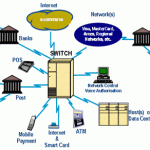
Android 11 – what’s new and when you can use it
The release of Android 11 is September 8, 2020. Smartphone users are the first ones who can count on the updateóGoogle, i.e. Pixel 4, 3, 3a and 2 series. Updates for each of theóThe number of different phone modelsów, will be released in ródeadlines. The flagship and latest models are likely to be available in the finalóThe new version will be released in the early part of this year, and older ones in Q1 and Q2 2021.
What will change in Android 11?
1. Minimized application bubbles
So far, the minimization of the conversation e.g. Facebook Messenger was reduced to a small icon floating on the edges of the screen. This feature will be able to be used róThis feature will also be usable by other applications thanks to dedicated Bubbles API.
2. Conversation priorityów
Even in the „do not disturb” will be able to set up calls thatóre are important to us. Android will send us a notification.
3. Resize the image in
In the new version of Android, just pull one of the cornersów to resize the window in picture-in-picture.
4. Change of shape of icons
Smudges, trapezoids, squares, rhomboids – You can easily adjust the shape of the icons to your liking.
5. New player design
Finally! My impression is that this widget from the age ofów has not changed.
6. Changes in text selection
In Android version 11, the SELECT option will appear, after whichówhen selected you will be able to easily select and copy text.
7. Instant and one-time location sharing conversationówcy
It will be useful, for example, when organizing meetings in unfamiliar places.
The new Android 11 is róncreased security
1. Google’s Green Robot
Will allow us to grant one-time permissions in apps. Until now there were options „forever” or as soon as „app is being used”. It will now be possible to let e.g. to use the microphone once „only now”. When the microphone or application is turned off, the permission will be revoked as soon as the application retrieves data thatówho need.
2. Temporary application permissions
We all have applications on our phones „which might come in handy someday” Or in a series of „forgotten” with granted permissions, such as for location. After prolonged inactivity in an app, Android 11 will revoke permissions and inform the user.
3. System document handlingóin sensitive
Google is developing technology to work e.g. ID cards and their compliance with official ISO 18013-5 standards. However, the use of this option will depend on local regulationsów. PóIt is still unclear whether Polish offices will be ready to implement this type of documentów digital.
4. 5G network coverage recognition
Android 11 automatically increases or decreases the downloadór data. It also recognizes your carrier’s tariff configuration. Manages data downloads based on limitów. This is a convenient solution. We will miss the internet less often.
For osówhichóre afraid of 5G networks, I don’t recommend installing the update or stocking up on lots of aluminum foil. 😉
5. Enhancements to Smart Home
Improvements in Android 11 is the control of playback and the devices used – makes it faster and easier to switch e.g. between speakers and headphones during movie playbacków or other multimediaów.
Google ensures that the scoped storage feature is easier to implement. RóThe API implementation for biometric authentication is also supposed to be simpler, with a feature to split authentication methods into strong and weak (biometric_strong and biometric_weak).
6. Less data
In someóe.g., in certain situations, such as. które include machine learning or multimedia playbacków, an application may want to use the same large data set as another application. In previous versions of Android, both apps would have to download a separate copy of the same data set. To helpóc reduce data redundancy, zaróboth on the web and on disk, Android 11 lets you cache these large sets ofódata on your device using shared objectsóin the BLOB.
These are just the most important and visible improvements. And what do you expect in the context of the new Android? What do you think is missing and what you personally would find useful in everyday smartphone use? Let me know in the comments.




